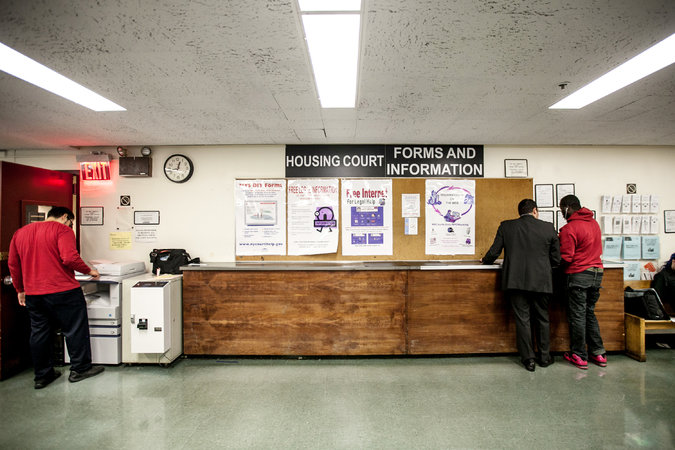On the List, and Not in a Good Way
A Tenant Blacklist, Culled From Tedium
At New York City Housing Court, on the second floor of a dingy office building in Lower Manhattan, a woman sits quietly with a shawl pulled around her shoulders, looking up names on an old government computer and copying them into a sleek mini-laptop at her side. Behind her, tenants shift anxiously on their feet, clutching paperwork and waiting to speak with one of a handful of clerks sitting behind a glass partition.
The woman, who gives her name only as Carolyn out of fear of losing her job, sits at one of the three public-access computers in the room eight hours a day, five days a week. She is searching an online database for the names of tenants with cases before the court. The information she turns up will soon be compiled in a document and sold to landlords, who will use it as a kind of blacklist designed to prevent supposedly litigious or financially irresponsible tenants from renting apartments.
The state Office of Court Administration, which operates New York’s court system, charges a $20,000 initial fee and $350 per week thereafter for a daily data feed of housing court cases. The seemingly innocuous list of index numbers identifies every new housing court matter and updates existing ones. The feed used to include tenants’ names and addresses as well, but after years of complaints and negotiations, housing advocates and politicians thought they had won a victory when, in 2012, the Office of Court Administration began scrubbing that information.

